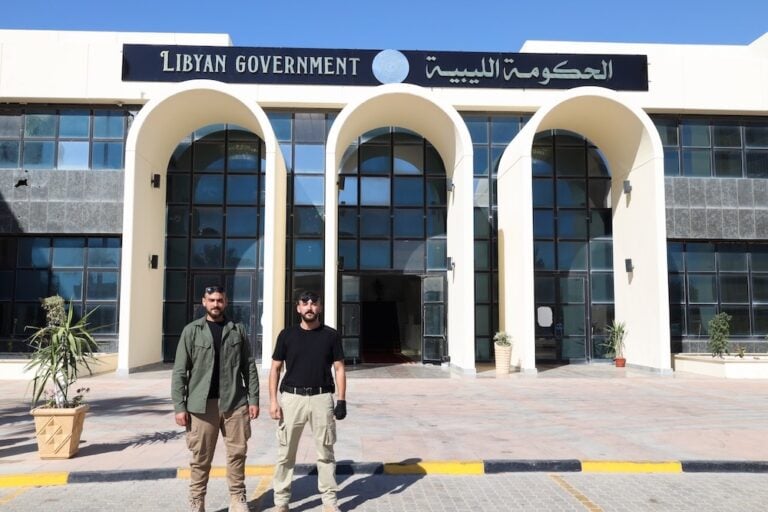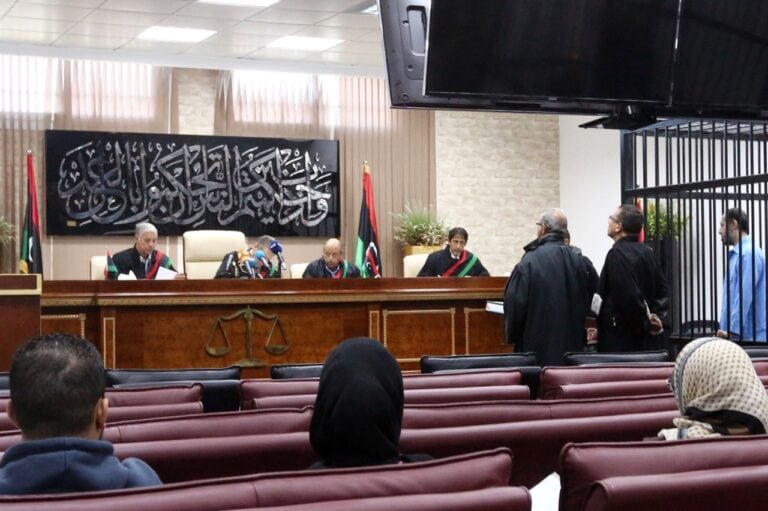Provisions in the recently published Draft Constitutional Charter for the Transitional Stage do not fully guarantee the right to freedom of expression, says ARTICLE 19.
(ARTICLE 19/IFEX) – Tripoli, 25 August 2011 – ARTICLE 19 calls on the Libyan Transitional National Council to include effective guarantees for the right to freedom of expression in the country’s interim Constitutional Charter.
“The right to freedom of expression is a pillar of democracy, vital to the protection of all human rights and central to human dignity. The absence of freedom of expression under the Gaddafi government led to widespread and systematic human rights violations, and the Transitional National Council has a duty to the people of Libya not to repeat this,” comments Dr Agnes Callamard, ARTICLE 19 Executive Director.
“The Council must change the Draft Constitutional Charter for Transitional Stage to guarantee the right to freedom of expression and the right to freedom of information, in compliance with international human rights law and standards.”
The Council has recently published the Draft Constitutional Charter for the Transitional Stage, intended to fill a gap before full elections and the creation of a new constitution. The Draft Charter outlines the structure of the country and guarantees several fundamental human rights.
It addresses some elements of freedom of expression. Article 13 guarantees, among other rights, “freedom of opinion for individuals and groups, freedom of scientific research, freedom of communication, liberty of press, printing, publication and mass media.” These provisions are a good start but do not fully reflect the guarantees of the right to freedom of expression as set by international law and standards.
ARTICLE 19 recommends that the Constitutional Charter defines freedom of expression broadly and explicitly states that it includes the right to seek, receive and impart information and ideas, to cover all types of expression and modes of communication, and to grant this right to every person.
The Constitutional Charter should also abolish censorship.
In order to address the culture of secrecy and human rights violations of the Gaddafi regime, the Interim constitution should protect the right of access to information held by or on behalf of a public body, as well as access to information held by private persons necessary to enforce a right.
The provisions of the Constitutional Charter on other rights should also meet international standards and ARTICLE 19 urges the Council to consider explicitly incorporating rights granted in international treaties into Libyan law.
ARTICLE 19 urges the Council to improve constitutional protection for human rights generally, and for freedom of expression and media freedom in particular. ARTICLE 19 stands ready to support the process of completing the Constitutional Charter, and of drafting a new constitution.


